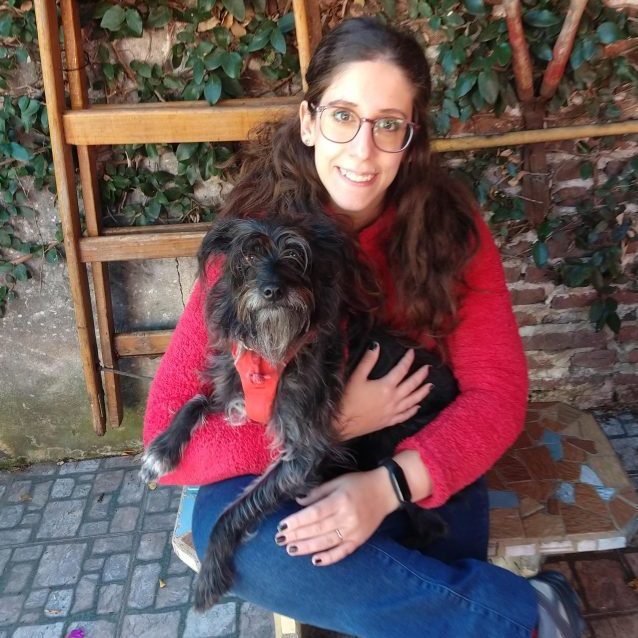ABOUT
As an undergraduate student I came across a lab studying dog cognition – I was excited to be able to combine a love for animals with a love for psychology! I believe a deeper understanding of the way dogs communicate with humans is vital to improve our relationship with them and protect their welfare, and thus I decided to devote my career to the study of dog cognition.
My PhD focused on dogs that participate in Animal Assisted Interventions (AAI), which are commonly known as “therapy dogs” that visit people in places such as hospitals, nursing homes, schools and so on. Although these kinds of interventions have been found to improve human health, animal welfare could be a concern because this type of work can be challenging for dogs. During my PhD, I compared the sociocognitive abilities of therapy dogs and pet dogs, and now as a postdoc I want to further expand my research, finding more about the characteristics of successful therapy dogs and whether their motivation to participate in therapy sessions can be increased through training. Finally, giving dogs the option to choose whether to participate or not in therapy sessions is a novel approach that focuses on their welfare, and can provide further understanding about their motivation to participate.
Most of the research within the area of AAI is devoted to their effectiveness and positive impact in human outcomes, but studies focusing on the animals taking part of them are surprisingly scarce. I think this type of research is essential, not only in order to protect the welfare of the animals but because therapy dogs are a really interesting population of dogs. While many dog cognition studies have compared family dogs with dogs that have a limited experience interacting with humans, such as shelter or free ranging dogs, therapy dogs allow us to explore the opposite situation: What happens with the sociocognitive abilities of dogs that have an increase in their frequency and variety of interactions with humans?
EDUCATION
Bachelor in Psychology (2016), University of Buenos Aires, Argentina
Teaching Training Degree in High School and Higher Education in Psychology (2021), University of Buenos Aires, Argentina
PhD in Psychology (2022), National University of Córdoba, Argentina
